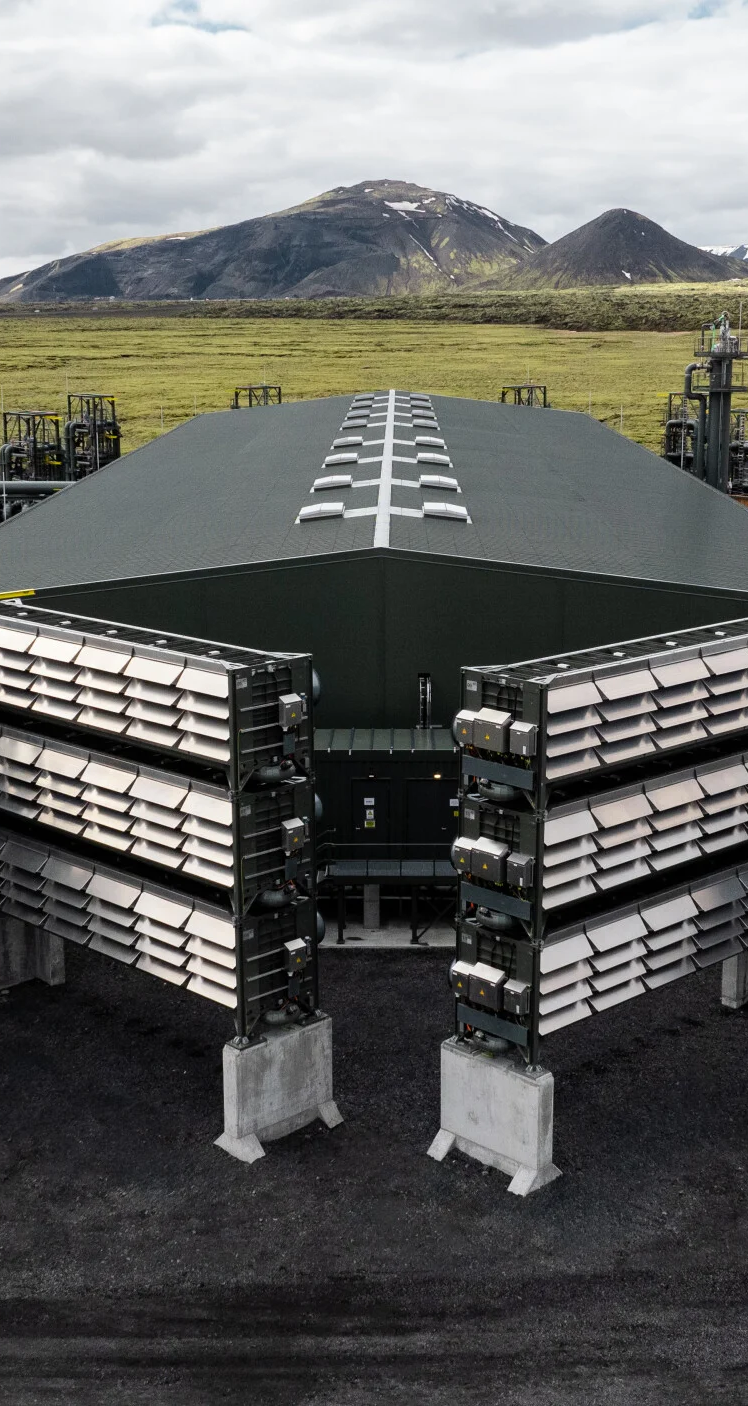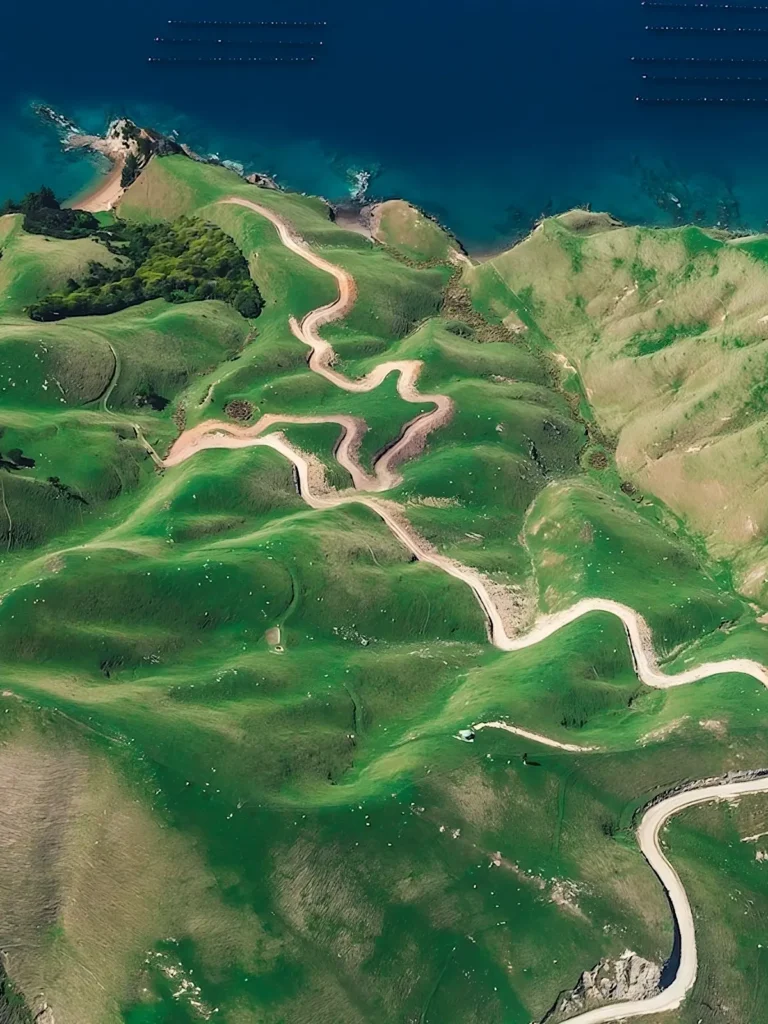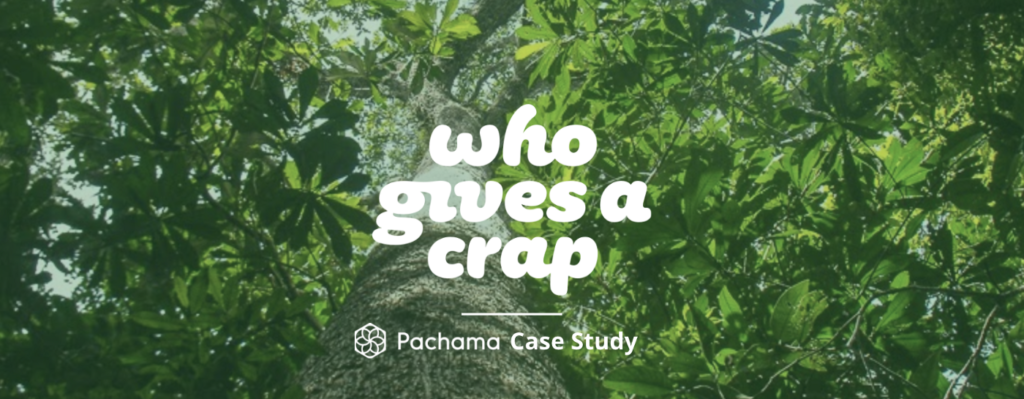
Who Gives a Crap is no ordinary toilet paper company. Started in 2013 when the founders learned that over 2 billion people don’t have access to a toilet, Who Gives a Crap is on a mission to improve access to clean water and sanitation by selling forest-friendly toilet paper.
They make money by selling toilet paper made from recycled fibers and bamboo, and then they donate half of their profits to non-profit partners working to improve sanitation. They love what they do, and as you might guess from their name, they have a sense of humor about it too!
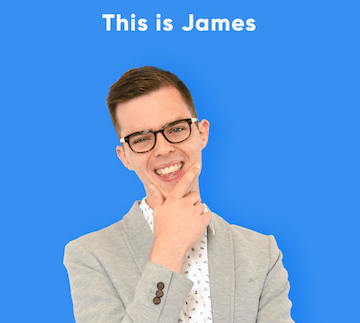
Who Gives a Crap recently partnered with Pachama to offset 100% of their emissions from shipping. We heard from James Castles, who led this initiative as Head of Special Projects, about why Who Gives a Crap decided to offset emissions, how they went about it, and how this step fits into their overall sustainability efforts.
Carbon, the Elephant in the Room
Who Gives a Crap’s passion for sustainability started with the founders and early team, and grew into a shared responsibility across all parts of the business. “Sustainability has been a core motivation for us since day 1,” said James. “We’ve tried to put sustainability at the heart of every one of our product choices. That’s why we make our toilet paper out of either 100% recycled fibres or 100% bamboo — both of these materials have lower carbon footprints than paper made from trees. We’ve also eliminated almost every piece of single use plastic from our supply chain.”
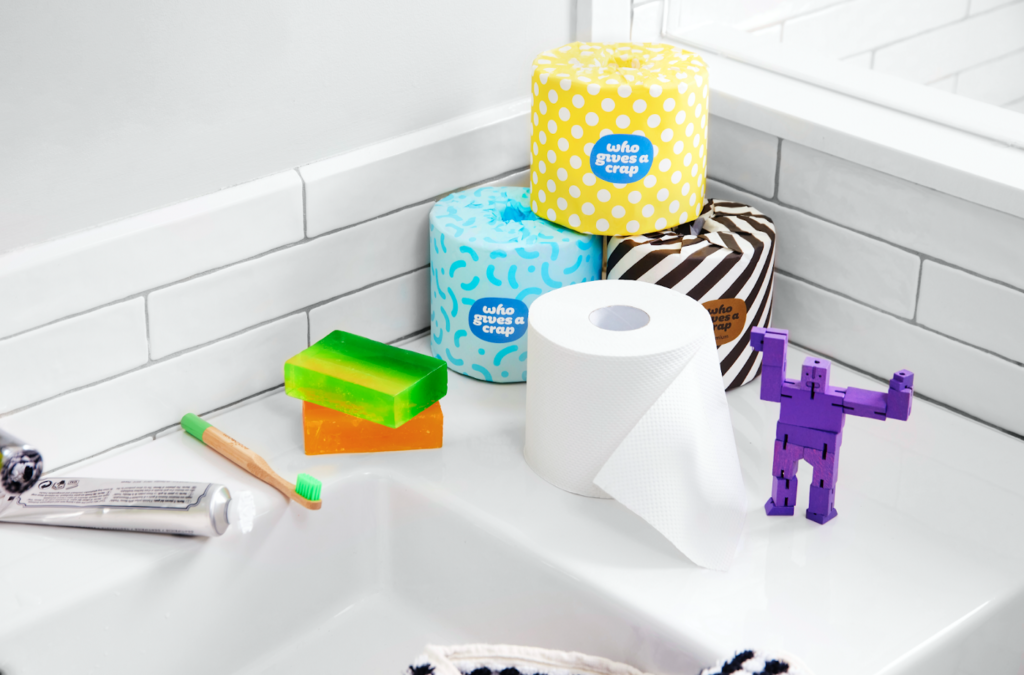
But as much as Who Gives a Crap has reduced its environmental impact, there are some emissions they can’t (yet) eliminate, especially from shipping. “Carbon has always been a bit of an elephant in the room,” said James. “We’ve wanted to address it for quite a long time — but we also know we’re seen as a trusted leader in the market, so we wanted to make sure we’d done our due diligence.”
“We embarked on our recent carbon neutral shipping initiative first and foremost because we felt it was the right thing to do for the planet,” said James. Rather than waiting for offsetting to become mandatory, Who Gives a Crap decided to take action now. James explains it this way: “Imagine if every company offset their emissions — the demand for offsets would far exceed the supply. In turn, the cost per offset would be so high that it would actually be cheaper to curb emissions directly. We want to be part of building that demand now rather than waiting until curbs are mandatory for everyone. Plus, we believe that offsets have a real impact and are a heck of a lot better than doing nothing. They’re part of the solution, which is why we’re advocating they go hand in hand with strategies to reduce emissions directly as well.”
“We embarked on our recent carbon neutral shipping initiative first and foremost because we felt it was the right thing to do for the planet. We believe that offsets have a real impact and are a heck of a lot better than doing nothing.”
Detailed Measurement Reveals Ways to Reduce Emissions
Once Who Gives a Crap decided to offset shipping emissions, James began his research. First, he read everything he could find about carbon neutrality and carbon offsets. Then, he sought out a variety of opinions from environmental experts to better understand the landscape.
“It became pretty clear that there are two approaches you can take to carbon offsetting — one is a very out-of-the-box solution, and one is more bespoke.” said James. While out-of-the-box emissions calculations can be quick and inexpensive, James worried that the calculations wouldn’t accurately measure the impact of Who Gives a Crap’s products. “Our boxes are quite bulky, which is atypical for eCommerce, so using a really standard number was not accurate enough for what we want to do.”
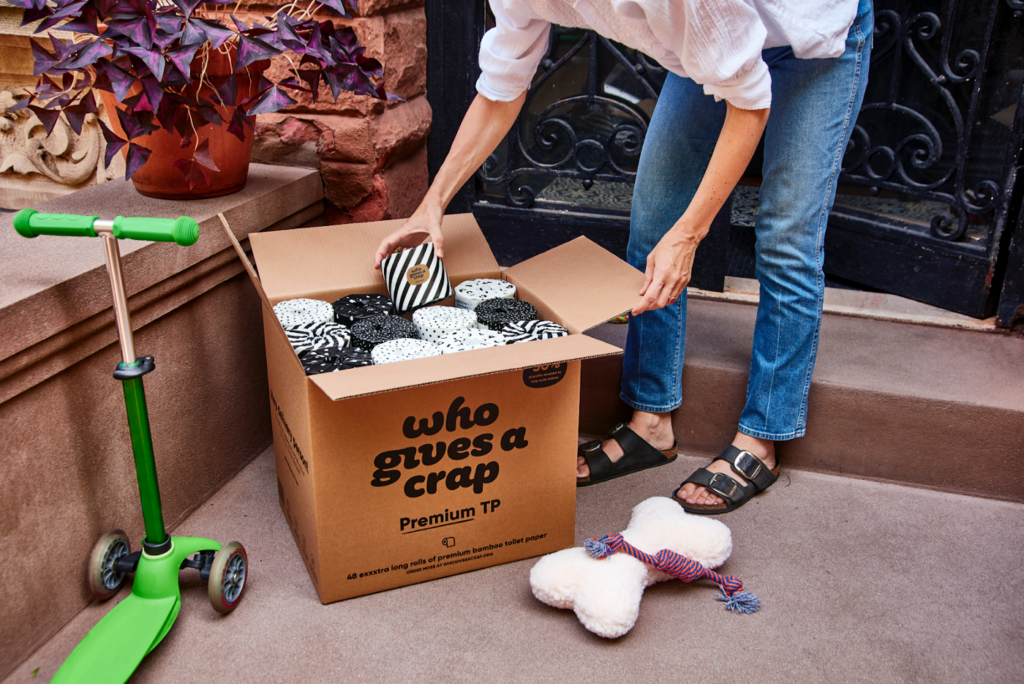
Instead, Who Gives a Crap hired a specialist sustainability firm to conduct an end-to-end lifecycle analysis to estimate how much CO2 is released as a result of their products. Not only did this analysis give a more accurate overall emissions calculation, but it also helped surface specific opportunities to reduce emission throughout the supply chain.
Once Who Gives a Crap knew their shipping footprint, James started looking for partners and projects that could help offset those emissions.
Who Gives a Crap Offsets Emissions by Protecting Forests
James heard about Pachama from some of his industry contacts and from Shopify, the e-commerce store provider for Who Gives a Crap. “We loved that Pachama uses really cool technology to verify and vet carbon offsets,” said James. Pachama’s focus on forests also resonated with the ‘forest-friendly’ focus of Who Gives a Crap’s products. “Protecting trees and forests is something we really connect with as a company and we know is really important to our customers,” said James.
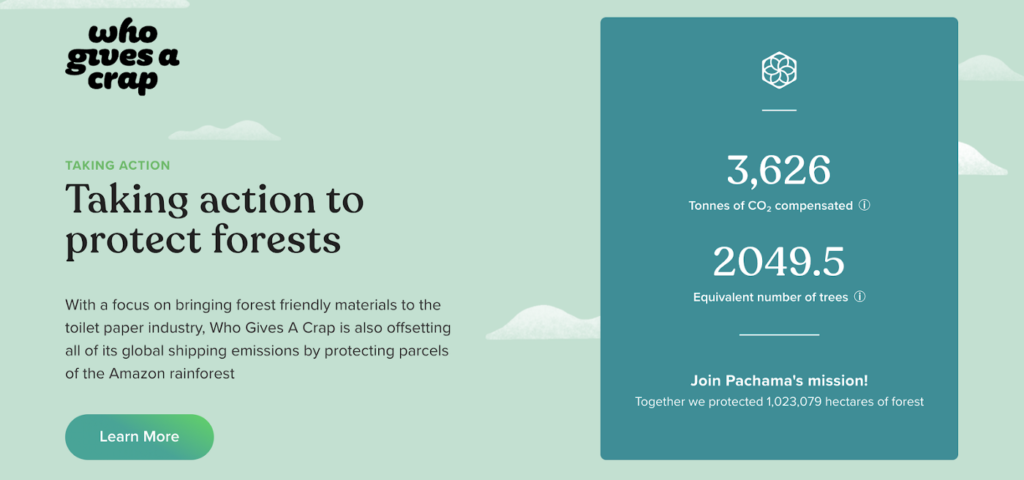
Who Gives a Crap chose to support the Brazil Nut Concessions Project on the Pachama platform. The project protects over 720,475 acres in the Peruvian Amazon and prevents 14.5 million tons of CO2 emissions. It empowers the local landowners to make a living by harvesting Brazil nuts from the old-growth forest, instead of deforestation. “We’re helping give a greater economic incentive for the local communities to protect the rainforests intact,” said James. “In a nutshell (hehe), this kind of offset project helps to support and develop local communities, while also protecting these beautiful, diverse rainforests.”
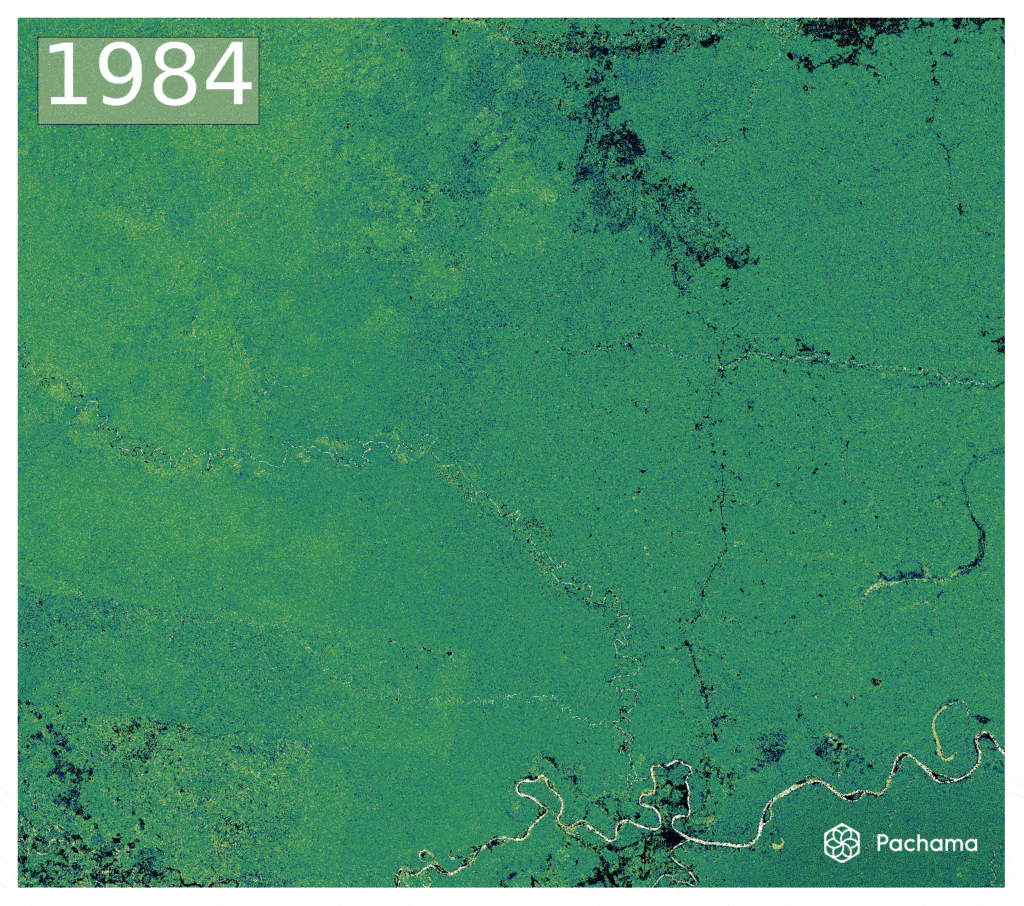
“We’ve also received thousands of emails, comments and shares in support from our customers and that makes us even more motivated to keep making our products even better, and even more sustainable!”
With their support of the project, Who Gives a Crap received a web page about the impact of their support. They’ve also shared about it on their blog and social media accounts. “We knew our customers would love it and we were excited to be able to do more to help protect the world’s forests with our carbon offsets,” said James. Indeed, the carbon neutral shipping initiative has been well received by customers and employees alike. “It’s been incredibly well received by our team,” James told us. “We’ve also received thousands of emails, comments and shares in support from our customers and that makes us even more motivated to keep making our products even better, and even more sustainable!”
Advice to others: Do it, then do better.
When we asked James what advice he would give to other organizations considering taking climate action, he said he would urge them to go ahead and do it and caution them not to let perfect get in the way of good. “Sustainability is incredibly complex and it’s easy to think that it’s too hard or find flaws in any approach you pursue,” he said. “What’s important is to start, to make a genuine effort to do the right thing, and be happy with an outcome that’s better than today. Nothing’s ever perfect, and you can always iterate, improve, and get better over time.”
“What’s important is to start, to make a genuine effort to do the right thing, and be happy with an outcome that’s better than today. Nothing’s ever perfect, and you can always iterate, improve, and get better over time.”
What’s Next? Making the supply chain more sustainable
With that spirit of iterative improvement, Who Gives a Crap is continuing to reduce emissions and improve the sustainability of its products and supply chain. They are working on a couple of sustainability initiatives based on insights from the Life Cycle Assessment. This includes working to move many of their supply chain partners to renewable energy, and after learning that Who Gives a Crap produces more emissions from road freight than sea freight, they’re also thinking about how they can further optimize their distribution network to maximise sea freight miles. But what is James most excited about? Soon Who Gives a Crap will be able to focus even more on sustainability — because they’re planning to hire a dedicated Sustainability Manager!
Interested in learning more about Pachma and how forest carbon credits can play a role in your sustainability plan, learn how our technology works and get started today!


